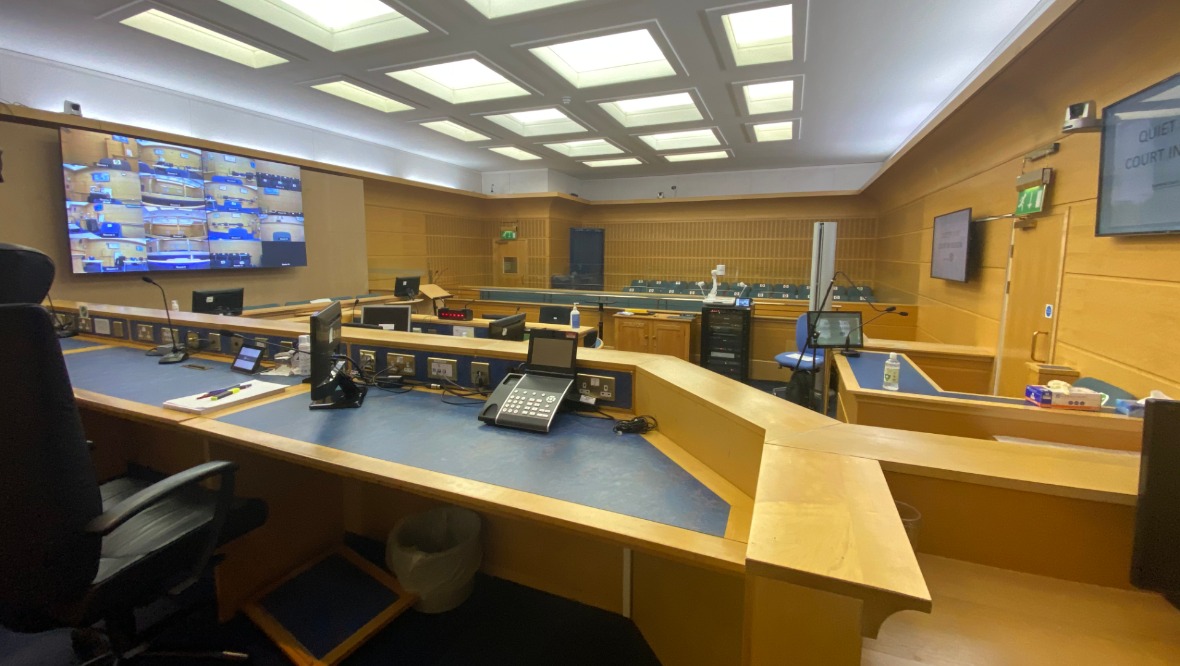Radical changes have been made to jury operations in Scotland’s courts to enable High Court trials to restart amid the coronavirus pandemic.
Jury members will be balloted remotely and in some cases view the trials they are deliberating on via video-link to comply with Covid-19 guidance including social distancing.
Following risk assessments and the publication of guidance, High Court trials will restart on Monday in Edinburgh and the following day in Glasgow, having been paused during the outbreak.
The move follows discussions of the Restarting Solemn Trials Working Group, chaired by the Lord Justice Clerk, Lady Dorrian, which includes representatives from across the justice sector.
“Court staff have been working extremely hard in recent weeks to arrange for jury trials to recommence, greatly assisted by interested parties from across the justice sector,” Lady Dorrian said.
“The challenges in conducting a 15-person jury trial in a physically distanced environment cannot be underestimated and I would like to thank all those involved for their commitment to ensure that justice is delivered safely.”
In each case, the 15 jurors, plus five or more substitutes, will be balloted remotely in advance of the trial date from a much larger pool of people who have responded to citations sent out last month.
Only those selected in the ballot as jurors or substitutes will need to attend the court building on the day of the trial itself.
Physical distancing measures will remain in place throughout the service of the jury including in the deliberation room.
Three rooms will be used for a single trial in the High Court in Glasgow – the courtroom with the jury seated in the public gallery instead of the jury box to enable distancing; a separate room for jury deliberations; and a media viewing room.
The High Court in Edinburgh will link the jury to the trial courtroom from a separate courtroom via video, with media able to attend in the public gallery.
The working group is continuing to assess and develop ways to allow more solemn trials – those heard before a jury – to take place in both the High Court and the sheriff courts, including identifying any required legislative changes to allow more use of digital solutions where appropriate.
Group members include representatives from the Scottish Courts and Tribunals Service, judiciary, Crown Office, Law Society of Scotland, Faculty of Advocates, Scottish Government and Rape Crisis Scotland.
Justice secretary Humza Yousaf welcomed the “innovative approaches” taken to resume High Court trials.
He said: “I am very conscious of the impact of the pandemic on justice systems across the world and the inevitable backlog of cases that require to be dealt with as a result of this.
“Behind each delayed jury trial are victims, witnesses and accused, who are all anxious to have their day in court and move on with their lives.
“Along with justice system professionals and other partners, we are considering what further operational and legislative options could help address the backlog and mitigate its impacts.
“While no single solution will be sufficient, the resumption of solemn trials is an important milestone on the journey to recovery for the Scotland’s court system and the safe administration of justice in the most serious cases.”
Follow STV News on WhatsApp
Scan the QR code on your mobile device for all the latest news from around the country





























